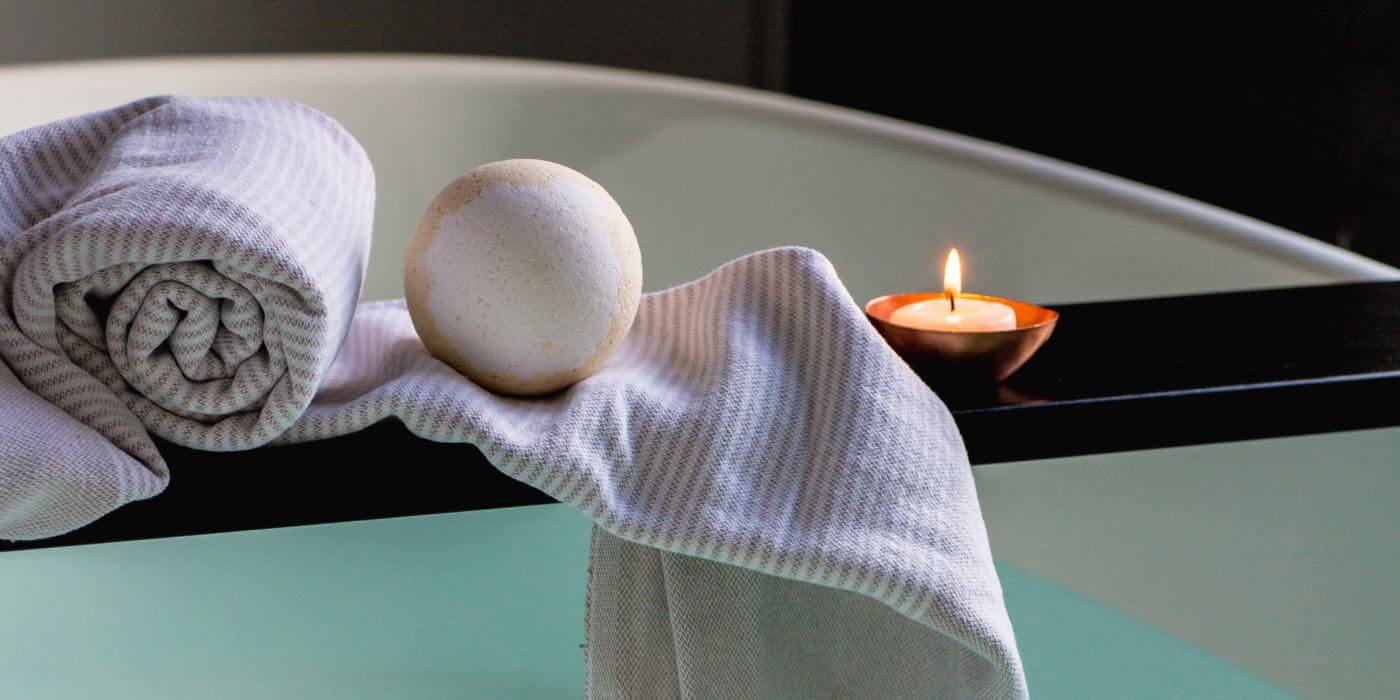Anxiety is a complex and confusing struggle.
And often the reason we stay anxious is because anxiety itself seems too overwhelming to even think clearly about, much less work through productively.
To help you cut through the confusion, here are 8 mini-lessons to help you get some clarity on your anxiety, and hopefully, start to move past it.
1. Never worry in your head.
Worry is the engine of anxiety: the more you worry, the more anxious you will feel. Unfortunately, you can worry really fast in your head, which means you can easily generate a TON of anxiety in a matter of minutes.
But here’s the thing… you can’t write your worries nearly as fast as you can think them. If you confine the speed of worry to the speed of writing—which is WAY slower than the speed of thinking—you’ll end up with a lot less anxiety.
So the next time you find yourself worrying, pull out a pen and worry on paper, not in your head.
Learn More: Why You Should Write Your Worries Down on Paper
2. Manage your stressors, not your stress.
Stress and anxiety are like eggs and bacon: If you smell one, there’s a good chance the other is close by. Which means if you lower your stress levels, your overall anxiety will follow.
But here’s the mistake I see too many people make: they’re obsessed with managing their stress, and all the while they ignore the stressors—the things that cause the stress in the first place. How long are you going to put Band-Aids on the symptom before you start treating the underlying cause?
Make a list of 10 situations that are stressful. Then for each one ask yourself: What’s the root cause of that stress and what’s one small action I could take to begin addressing it?
Learn More: 3 Hidden Reasons You’re Stressed Out All the Time
3. Don’t criticize yourself for feeling anxious.
There’s an old saying: Falling off the wagon isn’t the problem; it’s the rolling around in the mud that gets you. In other words, when you’re feeling down (like anxious, say), beating yourself up not only makes you feel worse, but it actively makes it even harder to “get back on the wagon.”
If you’re in the habit of criticizing yourself for feeling anxious, try this instead: Treat your anxious self like you would treat a good friend who was anxious—not with judgment or “tough love,” but with a little compassion and kindness.
Learn More: The Skeptic’s Guide to Self-Compassion
4. Name it to tame it.
It’s human nature to avoid things that hurt, including painful emotions. In fact, most of us are so eager to not feel bad emotionally, that we avoid even talking about our emotions and how we feel. For example, instead of saying “I’m scared,” we say “I’m just a little stressed today.”
When you use overly-intellectual or metaphorical language to describe how you feel, it’s called intellectualizing your emotions. And while you may get some temporary relief from avoiding talking about your feelings directly, it makes you feel worse in the long run…
Here’s why: Intellectualizing your feelings is a form of avoidance. And when you avoid things, you teach your brain that those things are dangerous. So, over time, you unwittingly train your brain to be afraid of feelings like anxiety or nervousness. Which means, the next time you feel anxious, you’re going to feel anxious about feeling anxious!
The solution is to get in the habit of talking about how you feel in plain, ordinary language. When in doubt, ask yourself this question: How would a 6-year-old describe this feeling?
Learn More: The Dangers of Intellectualized Emotions
5. Avoid reassurance-seeking at all costs.
The problem with anxiety is that most of the things that feel good in the moment make your anxiety worse in the long run. And reassurance-seeking is the perfect example of this.
When you feel anxious or worried, it’s natural to want someone to tell you everything will be okay. But the reality is, life is uncertain. And if every time you feel anxious and uncertain you immediately seek relief in someone else’s comforting words, what you’re teaching your own brain is that A) uncertainty is bad because you keep avoiding it, and B) you can’t handle uncertainty because you always “outsource” it to someone else.
So when you habitually ask for reassurance to soothe your anxiety, it’s a double problem: It makes you more anxious long-term by teaching your brain that the anxiety is bad and to be avoided; but it also lowers your self-confidence because you never prove to your brain that you can handle it yourself.
Instead of seeing uncertainty as a threat, learn to accept it as a reality however uncomfortable.
Learn More: 4 Habits of Highly Confident People
6. Take care of your body
No psychologically sexy ideas here, just some straight up biology: Your brain is a part of your body and it doesn’t work as well if you don’t take care of the body. Everybody knows how irritable and moody you can be when you’re sleep deprived or in pain, right? Well, even a 5-10% reduction in your physical wellbeing takes its toll on your emotional wellbeing, including your ability to manage stress, anxiety, and worry.
On the other hand, when you’re well-rested and physically healthy, it’s much easier to refrain from irrational fears, keep things in perspective, bounce back from stress, detach from worry, etc. Which means one of the best things you can do to lower your overall anxiety is to take care of your physical health.
Prioritize good sleep and regular exercise, and you won’t need 90% of the other tips in this guide.
Learn More: 3 Bad Sleep Habits Keeping You Exhausted
7. Ask for what you want, damnit!
Long-term anxiety is often the result of poor assertiveness. To be assertive means to ask for what you want, and say no to what you don’t want, in a way that’s both honest to your own wants and needs and respectful of others. Basically, it means the courage to be yourself.
When you’re in the habit of being overly passive and deferring your own wants and needs in order to constantly accommodate those of others, inner tension builds up: you feel stuck between wanting to do what you want and feeling like you can’t. And the result… Anxiety, lots and lots of anxiety.
If you’ve struggled with chronic anxiety, there’s a very good chance that the best thing you could do to help is practice becoming more assertive.
Learn More: The Beginner’s Guide to Assertiveness
8. Stop trying to think your way out of anxiety
Too much thinking will very often get you into anxiety but very rarely get you out.
If you struggle with chronic anxiety, there’s a very good chance you struggle with chronic worry too. Which means it’s going to be very easy to slip into those patterns and habits of worry and then end up making yourself more anxious.
This is why the best way out of anxiety is through action not thought. Trying to think your way out of anxiety usually just leads to worry and more anxiety. But taking meaningful productive action not only provides some relief from anxiety, often it leads to new insights that help reduce your anxiety.
So the next time you find yourself anxious, prioratize action not more thinking. If it helps, remember the 3Ms: Move, Make, Meet. Do something physically active, make or fix something, or engage with someone socially.
Learn More: To Quickly Shake Off a Bad Mood, Remember the 3 Ms
All You Need to Know
If you struggle with chronic anxiety, try to keep these little lessons in mind:
- Never worry in your head. If you must worry, do it on paper.
- Stop trying to manage your stress and focus on addressing your stressors instead.
- Be compassionate toward your anxiety rather than critical.
- Label your anxiety using simple, plain language.
- Avoid reassurance-seeking at all costs.
- Take care of your body by prioritizing quality sleep and regular exercise.
- Be assertive and ask for what you want.
- Stop trying to think your way out of anxiety. Use the 3Ms—move, make, meet—to build the habit of taking meaningful action instead.





7 Comments
Add YoursPrivate comment for Nick:
Looks like autocorrect did it again…
Typo: Replace “privatize” with “prioritize”.
I really enjoy your articles.
Sonja
Good catch! Thanks Sonja 🙂
–Nick
Thank you Nick for your helpful articles.
You’re very welcome, Ben!
Thanks – i found this really practical and very helpful
So glad it was helpful, Diana 🙂
Hi Nick,
My name is Jessica. I’ve been reading your newsletters and blogs, and I appreciate your tips so much! I’ve actually referred my readers to your website (I’m a yoga teacher and suffered from a panic disorder up until 7 years ago). Journaling and writing down your thoughts is incredibly helpful, as well as your other tips. Thank you!!